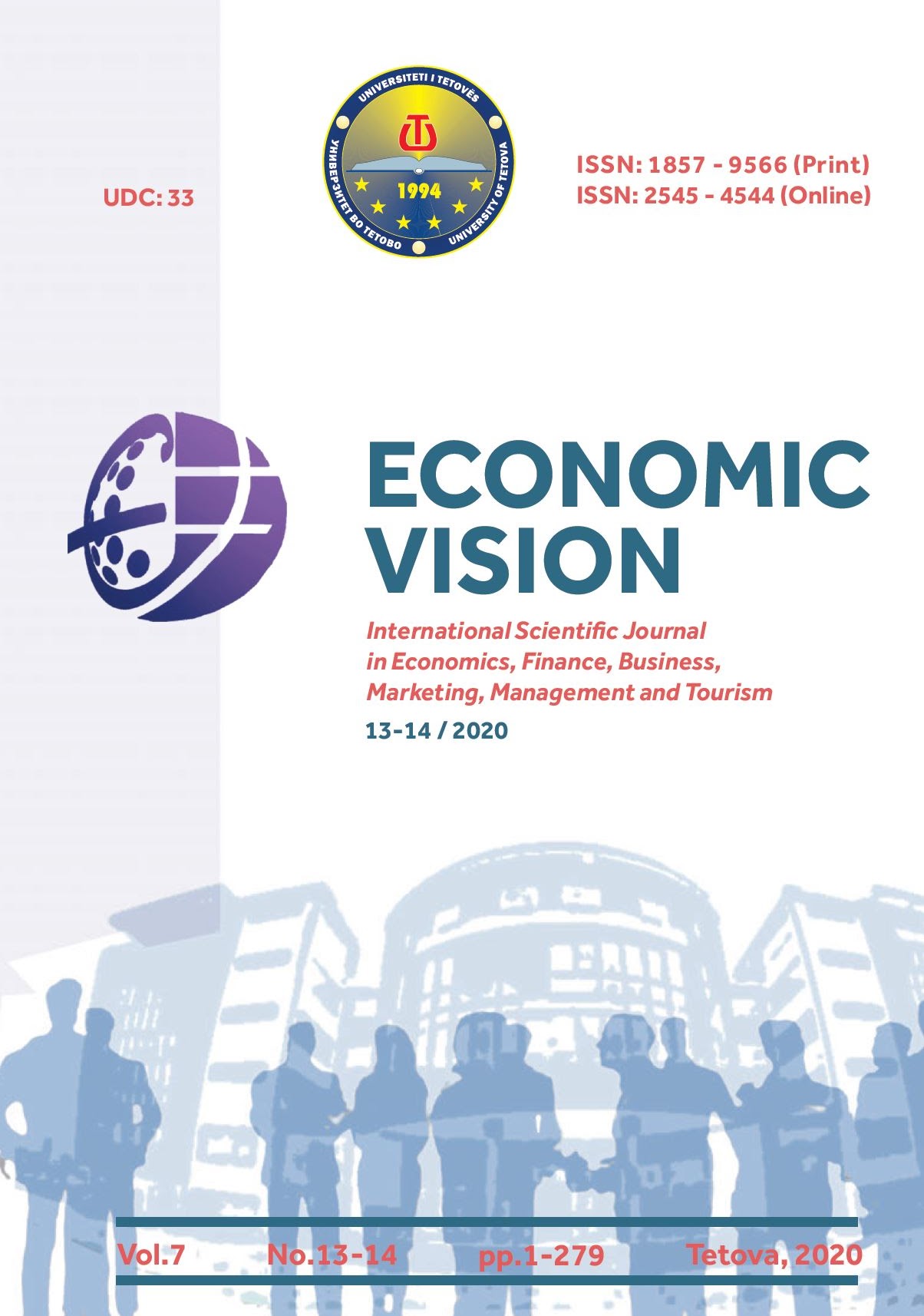INFORMALITY IN KOSOVO
INFORMALITY IN KOSOVO
Author(s): Veli Lecaj, Bekim SylaSubject(s): Business Economy / Management
Published by: University of Tetova
Keywords: Informality;Legal Strategy;business;Unemployment;informal environment
Summary/Abstract: In many developed countries and especially in developing countries the phenomenon of Informality is widely spreaded, which despite the global reach and despite the negative effects it has, this phenomenon has nothing to do with current activation and the definition of this placement of measurements and its classification. Through this study, informality is defined as a phenomenon that encompasses all economic activities but also judicial activities that businesses undertake to hide from the state, activities that are undertaken to bypass and neglect compliance with other business and legal policies. Therefore, as such, this phenomenon entails the concepts of tax evasion, informal employment and under-declaration of employees’ wages as well as the financial turnover of businesses. In general, informality causes economic costs when the state fails to establish stability of the business and socio-legal market operation and tax collection, which hinders economic growth, weakening the ability of the government to offer social goods for the citizens, as well as creating unsustainable operating environment. Thus, by offering motivation for small firms to remain as such and continue to embrace the option of evasion (in taxes or labor), losing this opportunity to create more opportunities to work in the formal economy, also, generating inequality between evasionists and non-evasionist, that creates the motivation for greater evasion involvement. So, informality leads to unfair competition, and puts more burdens on formal businesses. In this paper, you will find identified a few of the several aspects that have affected the non-formal sector, considering labor laws, aimed to present the links between certain policies, laws, and regulations in one side and unofficial employment and tax evasion on the other side, gaining understanding of new conclusions, leading towards choosing new strategies facing the damage caused by informal economy.
- Issue Year: 7/2020
- Issue No: 13-14
- Page Range: 262-271
- Page Count: 10
- Language: English

